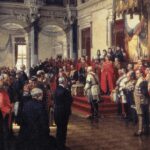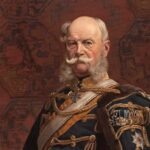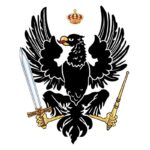
Imagine a political strategy where ideals don’t matter—only results. Where moral convictions take a backseat to outcomes, and alliances shift based on need, not loyalty. This is the world of Realpolitik, a cold, calculating style of governance that changed Europe forever. And no one embodied it more than Otto von Bismarck.
But what exactly is Realpolitik? Where did it come from, and why does it still matter today? Let’s explore the strategy that forged empires, toppled rivals, and still influences global politics in the 21st century.
What Is Realpolitik?
The word “Realpolitik” combines the German real (meaning practical or actual) and Politik (politics). It describes a system of politics focused on pragmatic goals rather than ideology or morality.
Think of Realpolitik as politics with the gloves off. It values:
- Practicality over principles
- Strategy over sentiment
- Results over ideals
Unlike idealism, which centers around what should be, Realpolitik is all about what is.
How Bismarck Brought Realpolitik to Life
Otto von Bismarck didn’t invent the term, but he personified it. His political philosophy was grounded in realism, and he was a master of turning complex situations to his advantage.
Mastering the Game of Thrones: Three Wars
Bismarck used Realpolitik to unify Germany, a task that had frustrated generations of idealists. Rather than appeal to nationalism or liberalism, Bismarck turned to strategy.
Between 1864 and 1871, he orchestrated three wars:
- Danish War (1864): Prussia and Austria defeated Denmark, gaining control of Schleswig and Holstein.
- Austro-Prussian War (1866): Prussia turned on Austria, defeating it and removing its influence over German affairs.
- Franco-Prussian War (1870–71): Bismarck provoked France into war, uniting the southern German states under Prussian leadership.
Each war was timed, planned, and executed with surgical precision. Bismarck even manipulated a royal telegram (the Ems Dispatch) to provoke France.
Shifting Alliances to Maintain Power
After unifying Germany, Bismarck continued using Realpolitik to maintain peace and control. He created a web of alliances designed to isolate France and prevent conflict between Austria-Hungary and Russia.
Key alliances included:
- League of the Three Emperors (Germany, Russia, Austria-Hungary)
- Dual Alliance (Germany and Austria-Hungary)
- Triple Alliance (adding Italy)
Bismarck’s diplomacy was flexible and opportunistic. He didn’t seek eternal friendships—only useful ones.
Controlling the Home Front
Domestically, Bismarck wasn’t afraid to play hardball. He waged the Kulturkampf (cultural struggle) against the Catholic Church, aiming to reduce its influence in German politics.
At the same time, he passed anti-socialist laws, suppressing opposition while ironically introducing social reforms like health insurance and old-age pensions to undercut socialist appeal.
Realpolitik vs. Idealism: A Clash of Visions
Realpolitik stands in sharp contrast to the liberal ideals of the 1848 revolutions, which sought democracy, freedom of the press, and national unity through peaceful reform.
Bismarck rejected these ideals. He gave Germany unity, but not liberalism. Power was centralized, and democracy was limited.
Where idealists saw politics as a moral mission, Bismarck saw it as a chessboard. And he rarely lost.
Why Realpolitik Still Matters Today
Though it peaked in the 19th century, Realpolitik remains a driving force in global politics. Modern examples include:
- Nations forming trade or military deals despite ideological differences
- Leaders choosing stability over democracy
- Peace talks that prioritize interests over justice
Whether praised as realistic or criticized as cynical, Realpolitik is alive and well in today’s diplomacy.
Surprising Facts About Bismarck’s Strategy
- The Ems Dispatch Trick: Bismarck edited a royal telegram to sound insulting to France, sparking the Franco-Prussian War.
- Social Reformer or Strategist? He introduced modern social insurance not from compassion, but to outsmart socialists.
- He Disliked Colonialism: Unlike later German leaders, Bismarck had little interest in overseas colonies.
- He Was Almost Assassinated Multiple Times: His enemies were many, but his security was tight.
- He Called Parliament a “talking shop”: He preferred backroom deals and royal decrees to public debate.
The Cold Logic of Power
Otto von Bismarck didn’t believe in perfect systems or noble intentions. He believed in power, timing, and staying ten steps ahead. His mastery of Realpolitik unified Germany, shaped Europe, and created a legacy that still echoes in the corridors of diplomacy today.
Realpolitik reminds us that politics isn’t just about dreams. It’s also about decisions—often hard ones—that shape the real world.
Related Articles:







